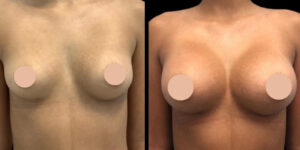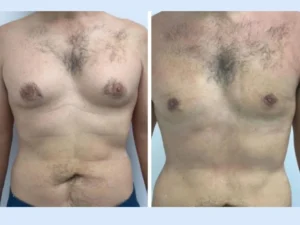Introduction
HIV (Human Immunodeficiency Virus) and chronic hepatitis B virus (HBV) infections are two serious health problems that affect millions of people worldwide. Both infections attack the body silently, damaging vital systems over time. HIV mainly weakens the immune system, making it hard for the body to fight other infections, while HBV mainly harms the liver, increasing the risk of liver failure, cirrhosis, and liver cancer. These diseases can occur together in some people, making treatment and care more complicated.
This article will explain HIV and chronic HBV infection in simple words, including their causes, symptoms, treatment, and prevention. It will also guide you on how to manage these infections and live a healthier life.
What is HIV?
HIV stands for Human Immunodeficiency Virus. It is a virus that attacks the body’s immune system, especially a type of white blood cell called CD4 cells or T-helper cells. These cells are important because they help the body fight off infections and diseases.
Entavir 0.5 mg tablets wholesaler provides a reliable supply of medicine that helps manage HIV infection and Chronic Hepatitis B Virus (HBV) infection for better health.
When HIV damages too many of these cells, the immune system becomes weak, and the body cannot protect itself from other infections and diseases. If left untreated, HIV can lead to a more serious condition called AIDS (Acquired Immunodeficiency Syndrome).
How is HIV Transmitted?
HIV spreads through:
Unprotected sexual contact with an infected person.
Sharing needles or syringes with someone who has HIV.
Receiving contaminated blood transfusions (rare in most countries now).
From an infected mother to her baby during pregnancy, childbirth, or breastfeeding.
HIV is not spread by:
Hugging, kissing, or touching.
Sharing food or drinks.
Casual contact like shaking hands.
What is Chronic Hepatitis B Virus (HBV) Infection?
Hepatitis B is a liver infection caused by the hepatitis B virus (HBV). When the infection lasts for more than six months, it is called chronic hepatitis B. Chronic HBV can lead to serious liver problems like liver cirrhosis, liver failure, and liver cancer.
Some people with chronic hepatitis B can live for many years without showing symptoms, but the virus may silently damage the liver over time.
How is HBV Transmitted?
HBV spreads through:
Unprotected sexual contact with an infected person.
Sharing needles or syringes.
From an infected mother to her baby during childbirth.
Exposure to infected blood or open wounds.
HBV is not spread by:
Hugging, kissing, or shaking hands.
Sharing food or utensils.
Casual contact in workplaces or schools.
Key Differences Between HIV and HBV
| Factor | HIV | HBV |
|---|---|---|
| Main Target | Immune System | Liver |
| Transmission | Sexual contact, blood, mother-to-child | Sexual contact, blood, mother-to-child |
| Vaccine Available | No | Yes |
| Can it be cured? | No, but can be controlled | No, but can be controlled and prevented |
| Major Complications | AIDS, weak immune system | Liver damage, liver cancer |
Symptoms of HIV Infection
Many people with HIV do not notice any symptoms for years, but the virus continues to damage the immune system. Some early signs of HIV infection include:
Fever
Chills
Fatigue
Swollen lymph nodes
Sore throat
Rash
Muscle and joint pain
As HIV progresses, more serious symptoms may appear, such as:
Rapid weight loss
Frequent infections
Night sweats
Persistent diarrhea
Skin problems
Symptoms of Chronic HBV Infection
Chronic HBV infection often shows no clear symptoms, but when symptoms appear, they may include:
Fatigue
Abdominal pain (especially on the right side under the ribs)
Loss of appetite
Nausea and vomiting
Yellowing of the skin and eyes (jaundice)
Dark urine
Joint pain
HIV and HBV Co-Infection
Some people may be infected with both HIV and HBV at the same time. This is called co-infection.
When a person has both infections:
Liver disease may progress faster.
Treatment becomes more complicated.
Special care is needed to avoid liver damage.
Doctors need to carefully select medicines that can treat both infections safely.
Co-infection can make managing health more challenging, but with the right care, people can live long and productive lives.
Diagnosing HIV and HBV Infections
HIV Diagnosis
HIV is diagnosed using:
Blood tests that detect HIV antibodies or the virus itself.
Home HIV test kits are also available in many countries.
Early diagnosis is important to start treatment quickly.
HBV Diagnosis
HBV is diagnosed through:
Blood tests that detect HBV surface antigens (HBsAg).
Liver function tests to check for liver damage.
Ultrasound or liver biopsy in some cases.
It is important to get tested regularly if you are at risk.
Treatment of HIV
HIV cannot be cured, but Antiretroviral Therapy (ART) can control the virus. ART helps:
Reduce the amount of HIV in the body.
Strengthen the immune system.
Prevent HIV from progressing to AIDS.
Reduce the chance of spreading HIV to others.
People with HIV need to take their medicine every day for life. Stopping treatment can make the virus grow quickly and damage the immune system.
Read more: Specialitymedz
Treatment of Chronic HBV
Chronic HBV infection can also be managed with antiviral medications. These medicines:
Slow down the virus.
Protect the liver from damage.
Lower the risk of liver cancer.
Not all people with chronic HBV need treatment right away. Doctors may monitor the condition regularly to decide the best time to start medication.
Living with HIV and HBV: Tips for Better Health
Living with HIV and/or HBV requires regular care and healthy lifestyle choices. Here are some tips to support your health:
Follow Your Treatment Plan:
Take all medicines exactly as prescribed by your doctor.Regular Medical Check-Ups:
Keep your scheduled doctor appointments to track your viral load, immune health, and liver condition.Avoid Alcohol:
Alcohol can harm the liver and weaken the immune system. Avoid drinking alcohol to protect your liver, especially if you have HBV.Eat a Healthy Diet:
Eat fresh fruits, vegetables, whole grains, and lean proteins. Avoid fatty and processed foods to support liver and immune health.Exercise Regularly:
Physical activity strengthens the body, improves mood, and helps maintain a healthy weight.Get Vaccinated:
People with HIV should get the HBV vaccine if they are not already infected. Vaccines can prevent further infections.Practice Safe Sex:
Always use condoms to protect yourself and others from HIV, HBV, and other sexually transmitted infections.Avoid Sharing Needles:
Never share needles, syringes, or sharp objects to prevent the spread of infections.Manage Stress:
Practice relaxation techniques like meditation, yoga, or deep breathing to manage emotional stress.Seek Support:
Talk to family, friends, or join support groups. Emotional support is important for mental health.
Preventing HIV and HBV Infections
HIV Prevention
Use condoms during sexual activity.
Get tested regularly, especially if you have multiple partners.
Do not share needles.
Pregnant women with HIV should take ART to protect their baby.
HBV Prevention
Get vaccinated against hepatitis B.
Practice safe sex.
Avoid sharing personal items like razors and toothbrushes.
Ensure blood transfusions are safe and screened.
Global Efforts and Hope for the Future
There have been great improvements in the treatment and management of both HIV and HBV. Scientists continue to search for better medicines, vaccines, and even potential cures.
Progress So Far:
HIV medicines have become more effective, easier to take, and cause fewer side effects.
More people with HIV now have access to treatment worldwide.
The hepatitis B vaccine is widely available and can prevent new infections.
Ongoing Research:
Studies are exploring HIV vaccines.
New HBV treatments aim to completely clear the virus from the body.
Long-acting HIV medicines are being developed that require fewer doses.
With continued research, early diagnosis, and proper care, people living with HIV and HBV can look forward to longer, healthier lives.
Conclusion
HIV and chronic hepatitis B virus (HBV) infections are serious but manageable health conditions. Understanding these diseases helps people take control of their health and prevent spreading the infections to others. With modern treatments, support, and healthy living, people with HIV and HBV can lead full, active, and meaningful lives.
Preventing these infections through safe practices, vaccination, and awareness is key to reducing their impact worldwide. By working together—patients, doctors, communities, and governments—we can build a healthier future for everyone.








